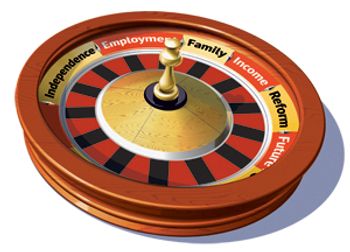
News












My wife, Rika, has completed six years of excruciating residency, passed the board exam the first time that she took it and is completing a similarly demanding medical toxicology fellowship now. She is raising our two beautiful children, works in a dangerous, hostile, challenging inner city ER, teaches, does research, refuses to hire a housekeeper yet keeps the house running like clockwork and puts up with me and all my crap.

Do you know the comorbidity rates for OCD in the schizophrenia population? Does early onset schizophrenia have any effect on disease severity? These questions and more from this week's quiz.

We can take one further step toward finding common ground in my ongoing debate with Drs Pies and Zisook.

A 3-year study involving over 3,000 patients used motivational interviewing to counsel adolescents about staying away from potentially violent and alcohol-related situations. It was found that these brief sessions “reduced by half the chances that teenagers would experience peer violence or problems due to drinking.”

E-mail is not for every physician. Legal concerns and HIPAA compliance are perceived barriers to using e-mail. They are excuses. There are, however, practical reasons that prevent most docs from considering e-mail.







The Centers for Medicare and Medicaid Services (CMS) wants rural hospitals and critical access hospitals (CAHs) to take certain new steps to ensure that the private-office psychiatrists they connect to in big cities for telemedicine services are qualified for that purpose.

Focus on Obesity, Insulin Resistance, and the Metabolic Syndrome

The aging of the world’s populations represents one of the most remarkable success stories in medicine and of humankind, but it is also a source of various challenges.

Chances are good you finally have a Web site for your practice. That’s assuming you’re among the majority of physicians - 65 percent, according to our latest Technology Survey. But is your Web site much more than a page or two listing your practice location and contact information? Probably not. And should it be more? Certainly.

Patients on average spent between 1 and 8 hours per day preoccupied with negative thoughts about their perceived [mal]odor.

One September morning . . .

If surveys conducted by physician recruiting companies accurately reflect current trends in the job market, the news is very good for psychiatrists-and less promising for many patients with mental health disorders.

The most disturbing turbulence at the boundary between psychiatry and the law is the misuse of a makeshift psychiatric diagnosis to justify the involuntary, indefinite psychiatric commitment of rapists. This is a disguised form of preventive detention and an abuse of psychiatry.